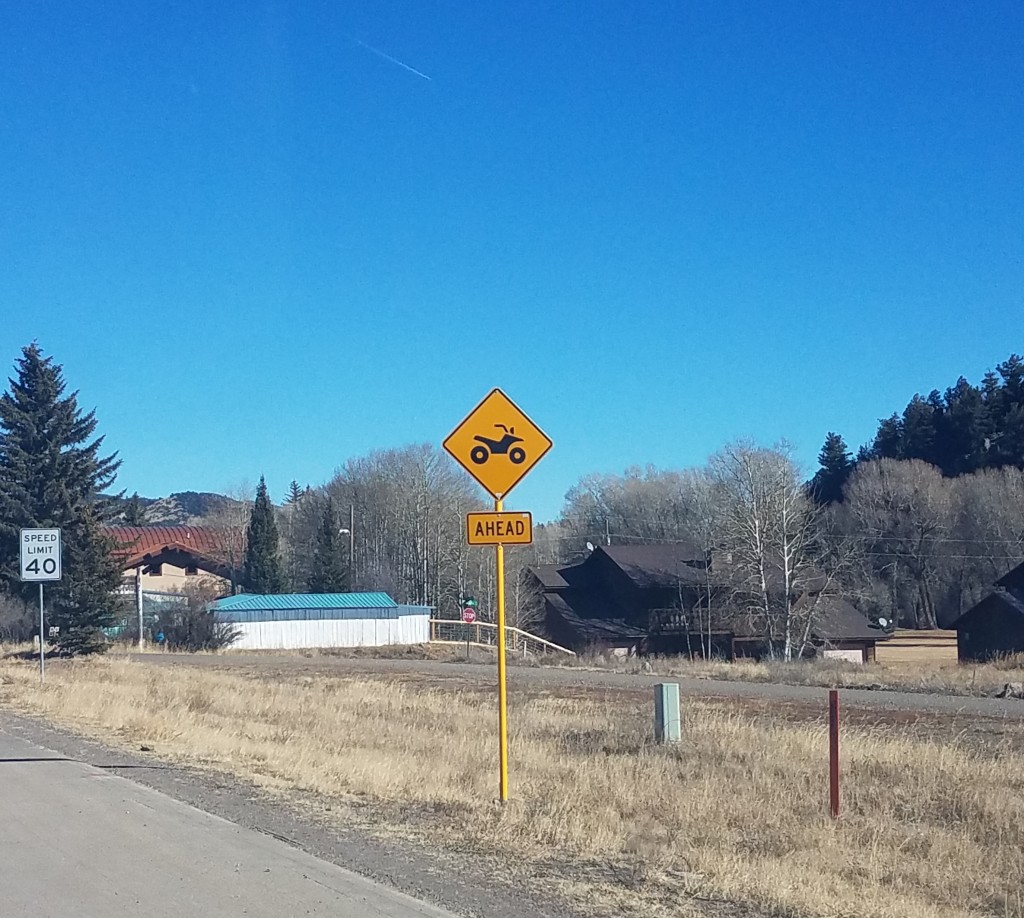South Fork officials work through lingering business

SOUTH FORK— During the monthly meeting of the South Fork Board of Trustees on Nov. 28, Town Administrator Dan Hicks gave an update on the ATV routes he has been working on with CDOT.
Hicks is currently working with CDOT representatives to finalize the ATV route through town. The current work is focused on enlarging the overall trail and reviewing a location near County Road 19, where there is a proposed highway crossing. Along with the additional crossing, Hicks and CDOT are working on an addition to the original trail near the Beaver Creek Road, adding in safety railings where the ATV trail runs near Highway 160 on the south side of town.
“We hired a surveyor to survey the areas on the Highway 160 corridor where the proposed trail will run, and we walked the property on Nov. 8. It should take him about two to three days to complete the survey with his crew and about two weeks to put together the survey maps,” said Hicks. The survey will show the distance of the trail from the highway, where the speed limits change and move the trail away from the highway and show where guardrails will be needed to protect riders from traffic.
“With the survey we should know how much guardrail will be needed to complete the trail,” said Hicks. Once the survey is complete, the board can then begin looking at the cost of the project and come up with a budget. Hicks explained that the 2018 budget will have $10,000 set aside for the installation of the guardrails as well as any other expenses that may come up in the ATV project. Some of the cost will come from having to build a culvert in the proposed trail. “The goal is to have all of this done and approved by CDOT in May when the visitors come back to the area,” finished Hicks.
Also during the meeting Hicks gave another update to board members regarding the rising prairie dog issue in South Fork. Through several conversations, board members have looked into the most cost-effective way to relieve the town of the rodent and have decided to hire a company to help them take care of the issue. Hicks stated that a local business will be using a CO2 treatment in the spring to remove the animals from vacant land, roads and private property where there are concerns.
The town has provided the local company with information on a CO2 machine that they will purchase to use on the affected areas once the town approves an agreement with them based on the price per acre proposal. Hicks thought it was better for the town to agree with an average price rather than by a per hole cost, which came out to be about $350 per acre of land.
Hicks spoke to the town board about needing to clarify the legal process they will have to follow to rid the animals on private property and would be working with Town Attorney Gene Farish on the steps that will need to be taken to ask property owners to participate financially in the project. Hicks continued, stating the town plans to work with land owners where the animals have become a problem and will be enlisting their help when it is time to begin the project. Hicks explained that the project will not begin until the animals are active which won’t be until late spring.



